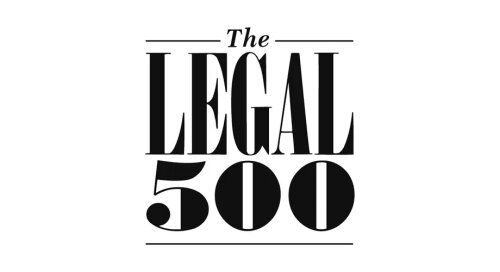Best Debt Capital Markets Lawyers in Beijing
Share your needs with us, get contacted by law firms.
Free. Takes 2 min.
List of the best lawyers in Beijing, China
About Debt Capital Markets Law in Beijing, China
Debt Capital Markets (DCM) refers to the area of financial markets where entities such as corporations, financial institutions, and governments raise funds primarily through the issuance of debt instruments. In Beijing, China, DCM plays a crucial role in supporting economic growth by facilitating access to capital. The market covers a range of instruments, including bonds, notes, and other fixed-income securities. These instruments are issued, traded, and regulated within a framework that ensures transparency, legal compliance, and investor protection. Beijing, being the capital and the financial regulatory hub of China, is at the forefront of debt capital market activities and regulation.
Why You May Need a Lawyer
Engaging in debt capital market transactions involves complex legal, financial, and regulatory considerations. Common situations where legal help is vital include:
- Structuring and issuing corporate or sovereign bonds
- Compliance with the regulations of the China Securities Regulatory Commission (CSRC)
- Drafting and reviewing disclosure documents (prospectuses, offering memoranda)
- Advising on cross-border debt issuances and listings (including the Bond Connect and Panda Bonds)
- Negotiating underwriting, trustee, and agency agreements
- Handling regulatory filings and approvals
- Resolving investor disputes or enforcement matters
- Interpreting new regulations and their practical impacts
A lawyer helps ensure transactions are compliant, minimizes risks, and facilitates smooth financial operations within the legal framework of Beijing, China.
Local Laws Overview
Debt capital markets in Beijing operate under a robust legal system centered on investor protection and financial stability. Key regulatory aspects include:
- The primary regulator is the China Securities Regulatory Commission (CSRC), which oversees public debt offerings and ongoing compliance.
- The People’s Bank of China (PBOC) supervises interbank bond markets, especially for financial institutions.
- The National Association of Financial Market Institutional Investors (NAFMII) supports registration and self-discipline within the interbank market.
- The Securities Law of the People’s Republic of China sets out fundamental principles for raising funds and investor protections.
- The Company Law lays the foundation for corporate governance relevant to issuers.
- Rules on Panda Bonds allow foreign issuers to access China’s onshore renminbi bond market.
- Disclosure, due diligence, and risk control are strictly regulated and enforced.
Adherence to these legal frameworks is critical for successful bond issuance and trading in Beijing.
Frequently Asked Questions
What are the main types of debt instruments issued in Beijing?
The most common instruments include corporate bonds, government bonds, financial bonds, medium-term notes, and commercial papers.
Who regulates debt capital market activities in Beijing?
The China Securities Regulatory Commission (CSRC) is the primary regulator, while the PBOC and NAFMII oversee various aspects based on the type of market or issuer.
Can foreign entities issue bonds in Beijing?
Yes, through Panda Bonds, qualified foreign issuers can raise funds in China’s onshore market, subject to local regulations and approvals.
What are the key steps in issuing a corporate bond in Beijing?
The process typically involves structuring the bond, preparing and submitting disclosure documents, undergoing regulatory review, and successfully placing the bond with investors.
What disclosure requirements apply to debt offerings?
Issuers must provide detailed financial statements, risk factors, and business information to ensure transparency and protect investor interests, complying with strict CSRC regulations.
Are there restrictions on who can invest in debt instruments?
Certain bonds may be offered only to institutional investors or qualified investors, depending on the bond type and regulatory requirements.
How are defaults and investor rights managed?
Bondholders’ rights in case of default are protected by law, with trustee arrangements and legal recourse mechanisms in place for enforcement.
Can bonds be traded on secondary markets?
Yes, many bonds are listed on the Shanghai or Shenzhen Stock Exchanges and can also be traded in the interbank market.
What taxes apply to debt capital market transactions?
Taxation varies based on the type of investor and bond, but generally includes value-added tax, income tax, and stamp duties in accordance with Chinese laws.
How can legal changes affect existing or new bond issues?
Changes in regulation can impact disclosure, eligibility, and listing requirements. It is essential to monitor regulatory updates and consult legal counsel to ensure ongoing compliance.
Additional Resources
Those seeking more information or assistance regarding debt capital markets in Beijing may find the following organizations helpful:
- China Securities Regulatory Commission (CSRC)
- People’s Bank of China (PBOC)
- National Association of Financial Market Institutional Investors (NAFMII)
- Beijing Municipal Bureau of Financial Work
- Major law firms with DCM practices
- Industry groups such as the China Banking and Insurance Regulatory Commission (CBIRC) for related financial products
Publications, financial news outlets, and official regulatory websites also provide timely updates and insights on market practices and evolving regulations.
Next Steps
If you need legal assistance in debt capital markets in Beijing, consider the following steps:
- Define your objective, such as bond issuance, investment, or compliance.
- Gather all relevant documentation, including company or investment details.
- Contact a reputable law firm with expertise in debt capital market transactions in Beijing.
- Schedule a consultation to discuss your specific needs, challenges, and regulatory requirements.
- Follow legal advice to navigate local laws, regulatory submissions, and transactional documentation.
- Stay engaged throughout the process to address any compliance concerns or changes in regulations.
Early engagement with a local legal expert ensures that your activities are compliant, efficient, and aligned with the dynamic regulatory environment in Beijing’s debt capital markets.
Lawzana helps you find the best lawyers and law firms in Beijing through a curated and pre-screened list of qualified legal professionals. Our platform offers rankings and detailed profiles of attorneys and law firms, allowing you to compare based on practice areas, including Debt Capital Markets, experience, and client feedback.
Each profile includes a description of the firm's areas of practice, client reviews, team members and partners, year of establishment, spoken languages, office locations, contact information, social media presence, and any published articles or resources. Most firms on our platform speak English and are experienced in both local and international legal matters.
Get a quote from top-rated law firms in Beijing, China — quickly, securely, and without unnecessary hassle.
Disclaimer:
The information provided on this page is for general informational purposes only and does not constitute legal advice. While we strive to ensure the accuracy and relevance of the content, legal information may change over time, and interpretations of the law can vary. You should always consult with a qualified legal professional for advice specific to your situation.
We disclaim all liability for actions taken or not taken based on the content of this page. If you believe any information is incorrect or outdated, please contact us, and we will review and update it where appropriate.















